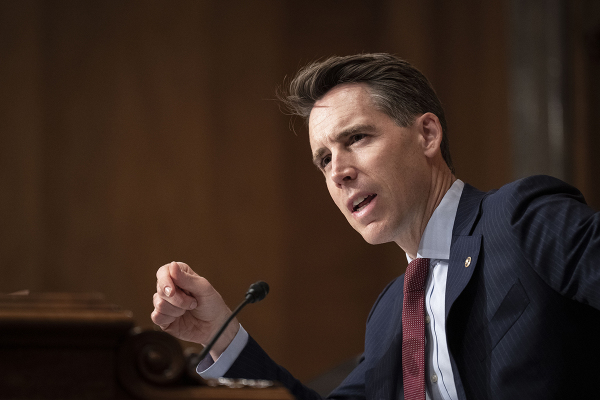Whatever Happened to Hell?
Many years ago, when cartoonist Johnny Hart was alive, he had a comic panel that was misunderstood. One of his caveman characters in BC was standing behind a rock (like a store counter) with the slogan saying in effect, "Gospel available here." The next panel showed another caveman asking, "What's the Gospel?" And the final frame showed the first caveman saying, "beats the Hell out of me."
Understandably, some conservative religious leaders thought Johnny was being sacrilegious and called for a protest against him and his newspaper syndicate. Thankfully, it never went anywhere because Johnny had been misunderstood.
I know for a fact Johnny was a man of faith, and his point was that the Gospel was the solution to the problem of Hell, which Johnny took very seriously.
Hell is not a popular doctrine for obvious reasons. Just this month, we saw the republishing (into paperback) of a major seller that for all practical purposes denies Hell (or the import of it). What makes this more difficult to stomach is that it was written by "an evangelical pastor."
Sixteen months ago, Rev. Rob Bell published the book, Love Wins, which denied a critical aspect of Hell. He didn't deny it exists; he denies essentially that any people will go there.
Its success was phenomenal in that the book spent twenty weeks on the New York Times' bestseller list.
Belief in Hell doesn't seem to be taken too seriously these days. Millions of high school students have been taught about Jonathan Edwards' famous sermon, "Sinners in the Hands of an Angry God," as a supposed example of Puritan excess. For instance, near the very end, he rebuked his own church (which later fired him): "Therefore, let everyone that is out of Christ, now awake and fly from the wrath to come. The wrath of Almighty God is now undoubtedly hanging over a great part of this congregation."
Difficult words. Yet this man's preaching in Northampton, Massachusetts helped spark the Great Awakening. George Whitefield helped spread this awakening up and down the Atlantic seacoast. John Adams said the push for American Independence was a political move that came a generation or so after the spiritual revolution that took place in the hearts of many of the colonists---which we now call the First Great Awakening.
In his 1974 book, The God Bit, the late comedian Joey Adams writes, "I love the attitude of my good friend Father Bob: 'Since I believe in the Bible, I'm sure there is a Hell. But I also believe in God's mercy---and therefore I'm sure it's empty."
Sounds nice. But is it true? That makes me think of the line from a Simon and Garfunkel song, "A man he hears what he wants to hear---and disregards the rest."
I keep reading these stories of some unhappy person blowing away a bunch of people---it even happened recently at a Christian college in California. Where's the fear of God in our society? I don't think people would do those sorts of things if they truly understood the reality of Hell.
In America's early years, a "future state of rewards and punishment" was an important concept. For example:
∙In 1786, founding father Benjamin Rush wrote: "Such is my veneration for every religion that
reveals the attributes of the Deity, or a future state of rewards and punishments…"
∙Noah Webster's first Dictionary (1828) had many Bible verses. He said one aspect of "Religion" includes "a belief in a state of rewards and punishment, and in man's accountableness to God…"
∙The Constitution of the State of Maryland, adopted in 1864, required political officials to hold to a belief "in a future state of rewards and punishments." The same held for South Carolina's 1778 constitution, as did Tennessee's constitution of 1796.
∙The Pennsylvania Supreme Court stated in 1817: "Laws cannot be administered in any civilized
government unless the people are taught to revere the sanctity of an oath, and look to a future state of rewards and punishments for the deeds of this life."
In short, Hell is a part of divine accountability.
When Osama bin Laden was finally killed in May 2011, a CNN/Opinion Research Corporation poll released shortly after found that 61 percent of the public thought he went to Hell, thus showing that a lot of Americans still believe in Hell.
CNN's Polling Director Keating Holland said this: "Not all Americans believe in Hell---a point of view reflected in the relatively large number of 'don't know' responses---and many religions don't include punishment in an afterlife as part of their teachings. Nonetheless, the six in ten who say bin Laden is in Hell reflects how strongly many Americans feel that bin Laden was an evil figure." And, as I say, it also reflects how many Americans believe Hell exists.
In short, Hell is the ultimate accountability. By Jesus dying for sins, love wins---for those who repent and believe on Him. For those who don't, Hell awaits. Thus, divine justice wins too. No wonder He said, "What does it profit if you gain the whole world and lose your soul?"
The Apostles' Creed says about Jesus that He "suffered under Pontius Pilate; was crucified, dead and buried: He descended into Hell." In other words, Jesus went to Hell for us on the cross, so we don't have to. That's why the Johnny Hart caveman could so cheerfully say that the Gospel "beats the Hell out of me."





















